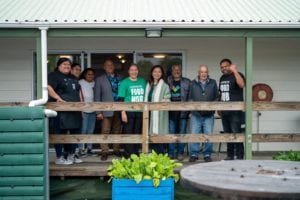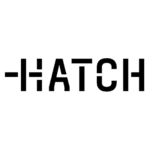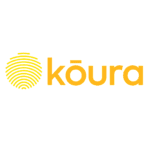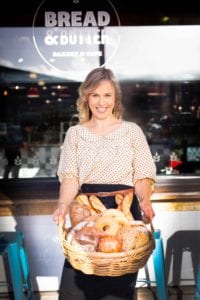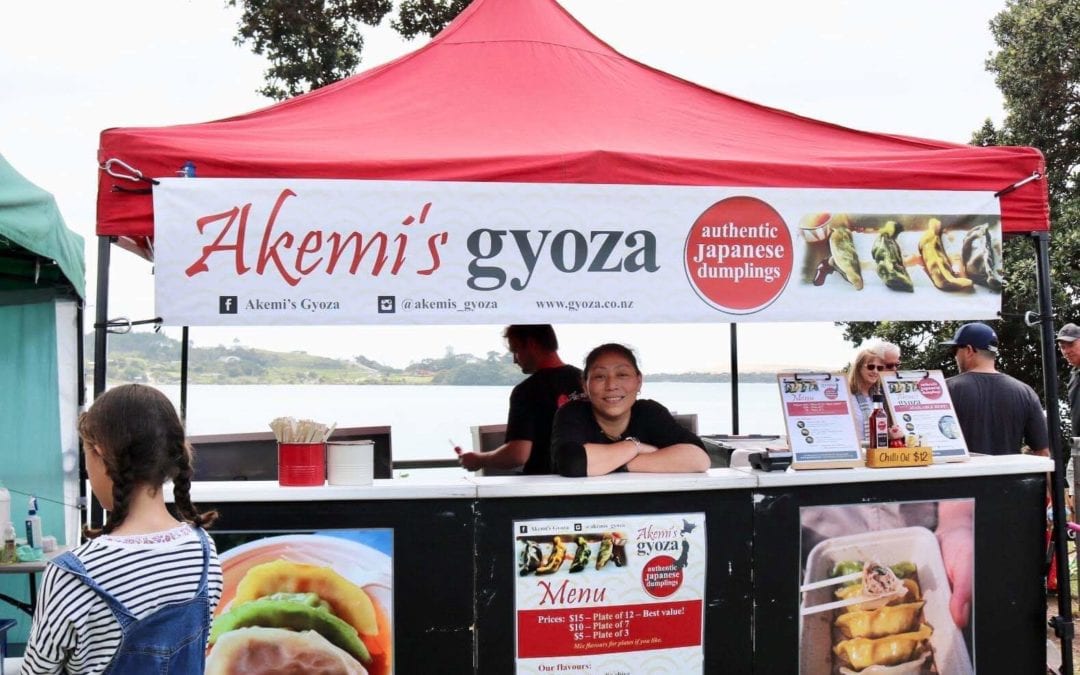
Lipsmacking Japanese Gyoza
Akemi grew up in Osaka, Japan savouring her grandmother’s pork and chive dumplings or gyoza as the Japanese call them. Gyoza was her favourite thing to eat and her Grandmum would always make them for her as long as Akemi helped her. As a result, Akemi learnt what went into the perfect gyoza and how to form them by hand when she was just six years old.
When Akemi came to New Zealand in 2009 she started working as a kitchen hand at a vineyard in Matakana and in her own words she “somehow became a chef”. She has no formal training as a cook. Akemi first made gyoza for a wedding at the vineyard. The Head Chef loved them so much they became a regular feature on their menu. Fast forward a few years and Akemi’s Gyoza was born in 2016 selling first at Matakana Farmers’ Market.
Today she is a regular feature at the Mangawhai Tavern market on a Saturday and the Clevedon market on a Sunday. She also caters for events and in the summer features at 2 – 3 other food events a month. On an average, she sells anywhere from 8,000 to 15,000 gyoza a week!
On our episode we talk about:
- The difference between a Chinese dumpling and Japanese gyoza
- Akemi’s journey of learning to make gyoza
- Why Akemi loves being at farmers’ markets
- How Akemi’s Gyoza evolved during the pandemic
Listen to the Podcast Here:
Follow their journey on https://akemisgyoza.nz/
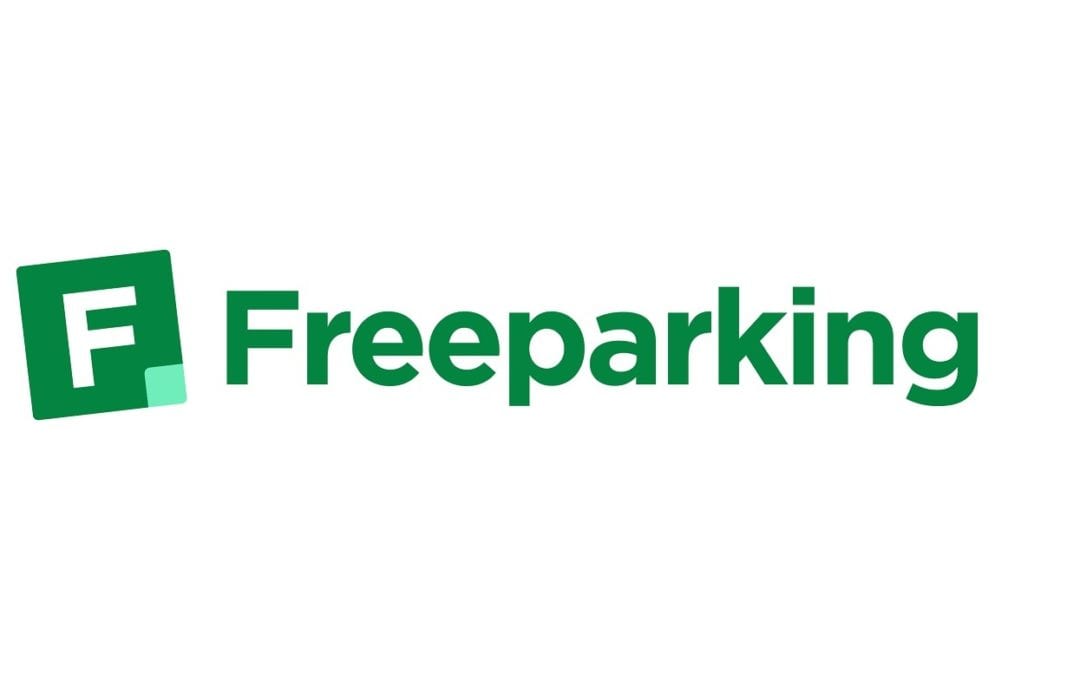
The Transformation of Umbrellar / Freeparking
Delving into the business transformation story of NZ company Umbrellar – from a domain name and hosting provider (including Freeparking, Webdrive and other brands) to a dramatically different business. In this NZ Tech Podcast episode, host Paul Spain talks with Michael Foley (Executive Chairman, Umbrellar) and Dave Howden (General Manager & Head of Cloud, Umbrellar).
Special thanks to organisations who support innovation and tech leadership in New Zealand by partnering with NZ Tech Podcast:
Umbrellar Connect
Sumo Logic
Vodafone NZ
HP
Spark NZ
Vocus
Gorilla Technology

2020: Was it All Bad for Golf?
Our hosts look back at 2020 and consider the impact of Covid-19 on golf in New Zealand and around the world. Certainly professional tours lost their galleries and it was strange watching television coverage without the usual fan reactions. But then recreational golf experienced a mini-boom in the second half of the year. Meanwhile, individual stars had their ups and down, none more so than Tiger Woods.
Listen now:
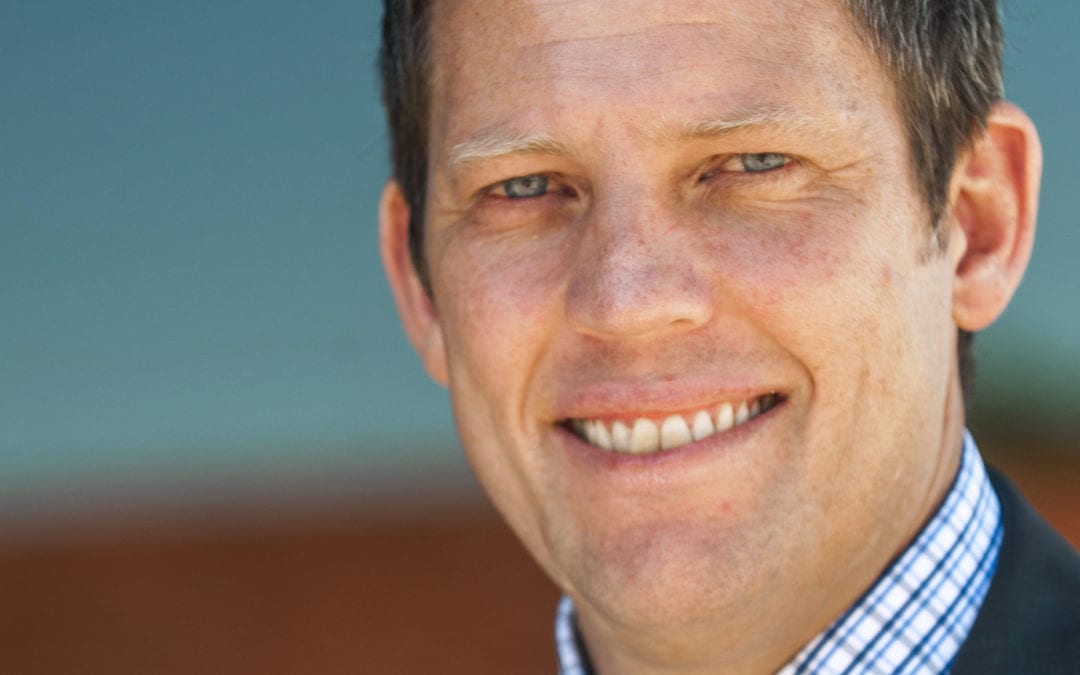
Auckland’s Transport Emissions Challenge: Shane Ellison, CEO, Auckland Transport
The Auckland Climate Plan sets a target of reducing GHG emissions by half by 2030. Now, we know that largest single chunk of Auckland’s emissions – that’s 37% – comes from land transport. So to achieve that bold target, transport emissions need to fall by a massive 64% – in just 10 years. That puts Shane Ellison in the hot seat. Shane is the chief executive of Auckland Transport, the council-owned company that manages Auckland transport network, from trains and busses, to roads, tunnels, footpaths and cycleways. Shane recently wrote a piece in the NZ Herald setting out the scale of the challenge. Vincent asked him how serious this challenge is, what needs to be done and why cycling in Auckland still sucks, big time.
Hear the Podcast Here:
Full disclosure: Vincent helped Shane write the NZ Herald article in his capacity as a public relations consultant. But the data and the opinions are all Shane’s – and this interview was not paid for.
Read Shane’s article here
Read the Climate Plan here
Read Todd Niall’s excellent summary here
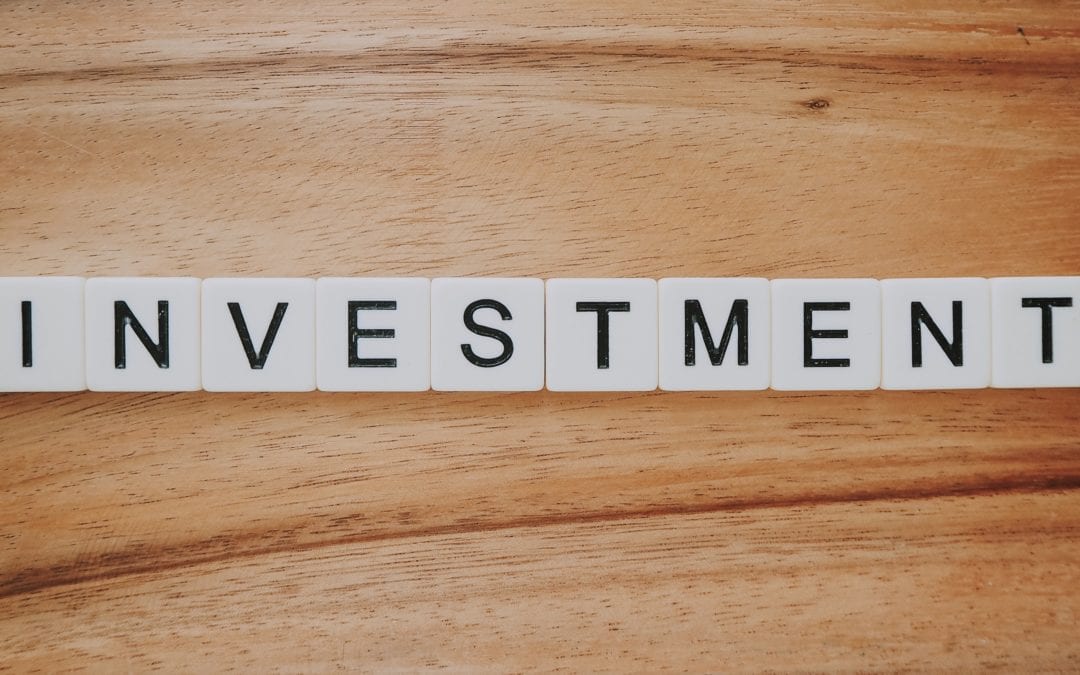
Technology Investment in New Zealand
The TIN200 Report, Punakaiki Fund, Sharesies and Hatch all feature in this discussion about technology investment in New Zealand in 2020 – and it’s importance in NZ’s future as an alternative to other investments such as property.
Special thanks to organisations who support innovation and tech leadership in New Zealand by partnering with NZ Tech Podcast:
Umbrellar Connect
Sumo Logic
Vodafone NZ
HP
Spark NZ
Vocus
Gorilla Technology
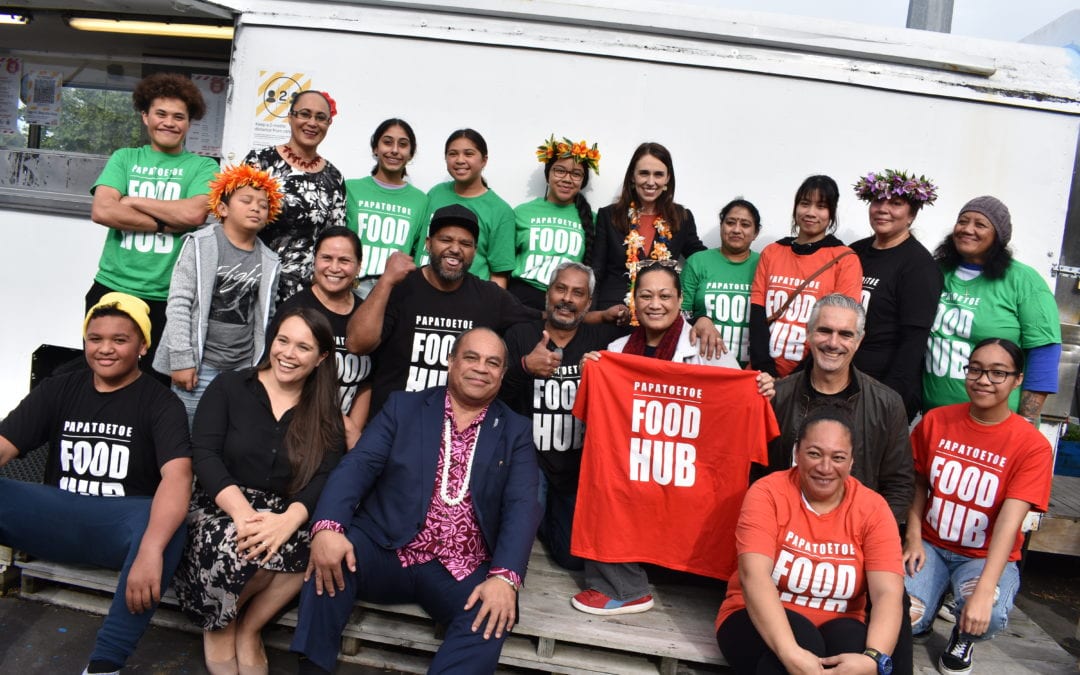
A New Approach to Kai
The Papatoetoe Food Hub collective is made up Roots Creative Entrepreneurs, Kai Tupuna, Taiohi Whai Oranga and Auckland Teaching Gardens, supported by The Southern Initiative, Healthy Families South Auckland, Otara Papatoetoe Local Board and Panuku Development Auckland. It’s a community driven project.
Their aim is to nurture a new approach to kai. One that encourages a behaviour change towards healthy food while also tackling food insecurity. On the surface they run a café. However, what this multi-use space is really doing is making good food accessible and affordable to the local community while also creating a hub where people can connect and share new concepts related to food.
Their partnership approach has seen them working with farmers in Pukekohe to rescue surplus produce and turn it into soup for local schools in Papatoetoe. They have made available indigenous food like hangi and umu available in Papatoetoe and they regularly also provide work opportunities for Papatoetoe youth and locals.
Since October 2019 the Papatoetoe Food Hub has also worked with Papatoetoe New World to rescue some of the supermarket’s surplus produce. This has resulted in approximately one tonne of produce being rescued each week to create healthy, affordable meals and juices at the Food Hub.
On the show we talk about:
- Creating a community led social enterprise, what’s involved
- There’s really good access to bad food. How can we fix this?
- Creating a food hub that represents the ethnicities within its local community
- Using partnerships to advance community projects
Listen to the Podcast Here:
Learn more about this community led social enterprise and order some of their kai: https://www.facebook.com/papatoetoefoodhub

Jacinda declares climate emergency! So what does that actually mean?
Last week NZ Prime Minister Jacinda Adern declared a Climate Emergency. In Parliament she said: “This declaration is an acknowledgment of the next generation … of the burden that they will carry if we do not get this right and do not take action now.”
The declaration has been a long time coming and follows the example of many other countries and cities, including some in NZ. So what is a climate emergency? What difference will it make? And what other ‘emergencies’ get bumped off the agenda as a result? With Vincent to discuss this move are two climate campaigners and rational optimists: Melissa Clark-Reynolds, a professional director and futurist who was the first New Zealander to train with Al Gore, when he was still a thing; and Rohan MacMahon, a technology investor and adviser with the Punakaiki Fund.
Hear the Podcast Here:
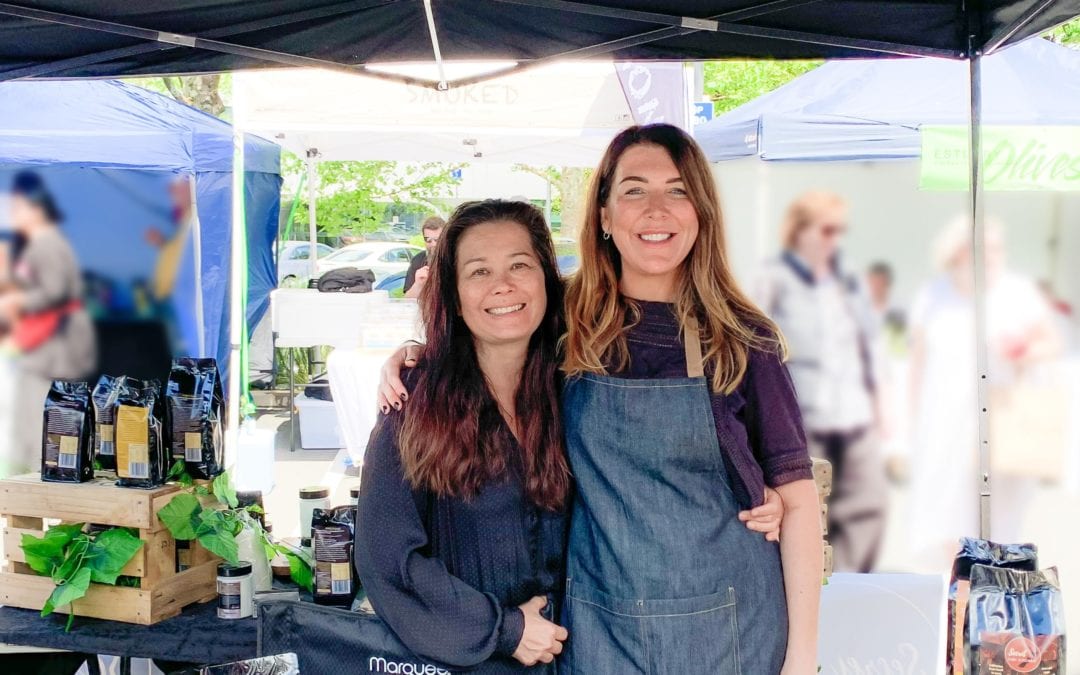
The Secret to Delicious Baking
Clare Gallagher and Lauren Taylor have seven kids between them. They believe in the magic of home baking but know firsthand how messy baking with kids can be. They also know how busy life can get and recognized that while we’d all like a plate of treats to share, baking from scratch can be tedious.
When Lulu lost her job during the Covid lockdown they put their heads together and came up with an 8th baby; their business, Secret Kiwi Kitchen. Secret Kiwi Kitchen makes all natural, artisan baking mixes like a brownie mix, fudge sauces as well as a molten marshmallow sauce.
Not only do their baking mixes bring families together but they also empower kids! Lauren shares, “We got an email from a mother who shared how our mixes are empowering their kids. Her son had a shared morning tea for his rugby team and she got him our blondie kits so that he could make them himself”.
From launching in August to being stocked at Smith & Caughey’s just five months later, this is an incredible story you want to listen to!
On the show we talk about:
- How can baking at home be made easier?
- Getting the word out about your business in the really, early days
- What exactly is marshmallow fluff
- Rapidly scaling a food products business, what it takes
Listen to the Podcast Here:
Secret Kiwi Kitchen: https://secretkiwikitchen.com/
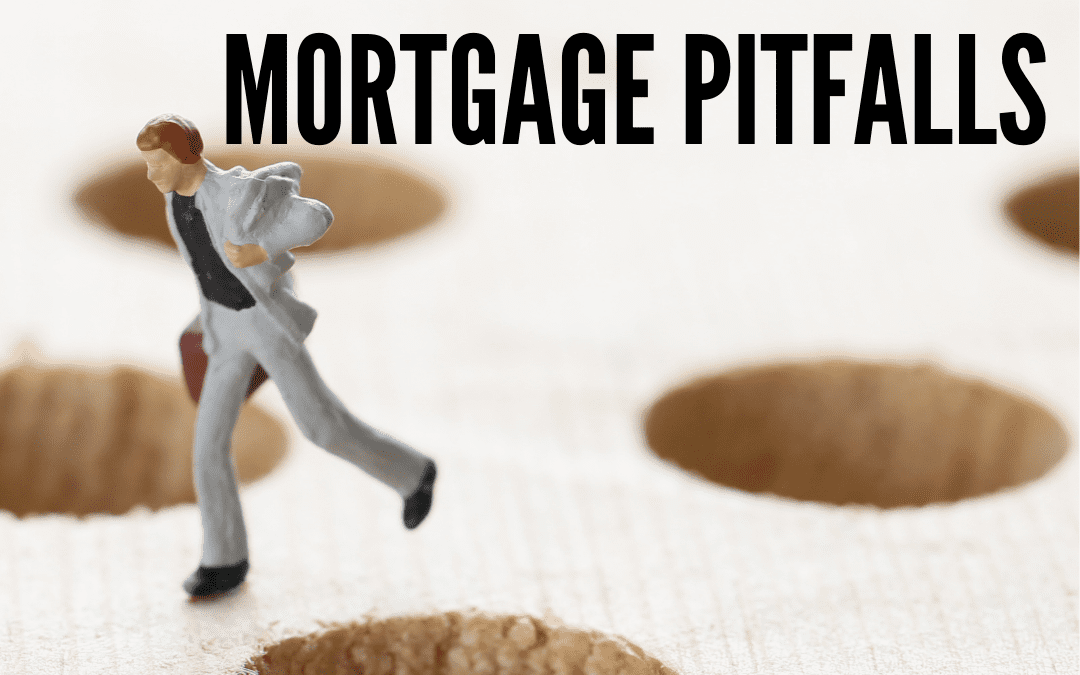
Tip for Home Buyers / Alex Matheson
Tips for Kiwi home buyers
To help you navigate through the many potential pitfalls of your next home (or your first), Darcy Ungaro is joined by mortgage advisor Alex Matheson to cover things you may not read on your favourite facebook group.
In the world of mortgages, banks are king.
Those with the gold make the rules, and if you want their money, you should fall neatly in line behind them. As most prospective buyers will know, the first step into a home requires the banks to give their tick of pre-approval.
How important is a nice suit and winning smile? A couple of decades ago, appearance, who your family is, and how long you’ve been a customer of the bank mattered – it doesn’t count for much any more.
“Banks want to understand how much you’re making, and how much you’re spending. But they also want to know what you’re spending it on,” said Alex Matheson.
Spending in a way that is palatable to the banks might mean trimming down weekly costs, such as streaming TV subscriptions, boozy Waiheke weekends, or a tab at the local casino.
“You can look into the mold of people’s character through their bank accounts. Banks will do this officially, but they’ll also do it by the picture that’s painted. Are you taking large amounts of money out of an ATM near SkyCity? What’s your spending on liquor looking like?”
New rules and economic uncertainty makes the process of assessing potential borrowers much harder than before for the banks. COVID has forced banks to dial up their due diligence on borrowers to be and specifically around their employment sustainability.
For the 1 in 6 Kiwis who make their money working for themselves, this can get even tougher, especially if you’re in the most affected industries.
“Banks usually want around two years for self employed income, so they can see what you’re earning and what you’re paying in tax,” said Alex Matheson.
“It’s not just for those that are self employed though. If you’re a flight attendant with Air New Zealand, I’m not going to be able to rely on your PAYE income”
The surge in demand as well as the increased scrutiny on applications has led to extended delays in the amount of time approvals take to be seen at banks.
When the housing market gives you lemons… buy an orange instead?
For home buyers tempted to attend auctions armed with a pre-approval – there are some real dangers. Sure, it’s fun to get in there and wave your flappy hands in the air like you just don’t care – but is the bank fully aware of what you’re about to buy? Most ‘pre-approved’ are approved only for the loan amount, but not actually for the home that may have unconsented works or a defective title.
“For every house you’re buying, you want to get your mortgage advisor or you bank on the phone and check that the home is “an acceptable security property”.
And they’ll want to know warts and all too — the leaflet from the real estate agent won’t cut it. They want the sale and property agreement (or draft auction agreement), a copy of the title, confirmation you can get insurance (without exclusions), all of which need to be done well in advance of pulling the trigger on the auction floor.
Should you invite your bank over for Christmas?
A huge thing any New Zealander will need to think about as they try to buy a new house, is where they’re going to get the money. If not savings, then the bank (or a combination of both) / if that’s not enough, what about the bank of mum and dad?
Parental assistance mostly takes two forms:
The first is a ‘loan’ from a parent, AKA the deed of acknowledgement of debt. Not only is this a mouthful to say, but it can be a mouthful to explain to a bank, unless of course one knows what to prepare for.
“A bank knows that if it’s between you paying parents back, or paying the bank back, you’re probably going to be paying your parents back first. You’re not inviting your bank over for Christmas.”
In the mortgage world, the second option is by far the easiest. Though few will count themselves in the lucky group for whom it’s available: A ‘no strings attached gift’ is a dream for a bank, as now they don’t have to worry about buyers choosing between them and whānau.
“[…] your first home might be in the millions”
In a bull housing market, deciding how big to go can be the toughest call of all. Go small now, upgrade later – or go big now so you can dodge the higher prices in the future?
Are kids on the cards in the medium term horizon? Are you therefore purchasing today’s home, or tomorrow’s home?
For Alex, he made the mistake of going too small in the first instance, buying a two bedroom brick and tile unit. After children came on the scene, it was obvious this home wasn’t going to work out long term.
People will often opt for less than optimal areas too, under the impression they’ll become expensive down the line, often to be disappointed to observe they’ve been locked out of their ideal neighborhood due to rising prices.
As a rule, the closer to the inner city, the faster the prices tend to rise. Thus, the longer a buyer takes to enter their favoured area, the more likely they are to be priced out of it. The first move, ironically, should be the biggest move one can make, to avoid this risk.
Once home buyers can get the bank on side, and get into a home, the rest seems to happen automatically. A home creates stability but also a platform to grow wealth over time. There are traps to avoid when buying property however (especially when banks are involved), so there’s a need to get informed (even if it’s not your first rodeo). ALWAYS use a mortgage adviser if it’s an option to you.
One thing will likely always remain true, as long as the financial world works the way it does – it’s highly probable house prices will always increase (in the long term). Instead of focussing the blame on different groups of people and expecting the government to fix the ‘problem’ or rising prices, the focus for any determined home buyer should be on solving the problem. Get in the market, stay in the market, then plan your next move.
____________________________________________________________
The NZ Everyday Investor is brought to you in partnership with Hatch. Hatch, let’s you become a shareholder in the world’s biggest companies and funds. We’re talking about Apple and Zoom, Vanguard and Blackrock.
So, if you’re listening in right now and have thought about investing in the US share markets, well, Hatch has given us a special offer just for you… they’ll give you a $20 NZD top-up when you make an initial deposit into your Hatch account of $100NZD or more.
Just go to https://hatch.as/NZEverydayInvestor to grab your top up.
____________________________________________________________
The NZ Everyday Investor would also like to acknowledge the support of kōura.
Most people fixate on just fees or historical returns when trying to choose a KiwiSaver fund. But professionals know there’s the third, arguably more essential component to consider – asset allocation. kōura’s digital advice tools will build you a KiwiSaver portfolio that has the perfect asset allocation just for you. Of course you could also just choose your own KiwiSaver portfolio with them too. Give them a try and see what your ideal KiwiSaver asset allocation looks like for you.
___________________________________________________________
Like what you’ve heard?
You can really help with the success of the NZ Everyday Investor by doing the following:
1- Tell your friends!
2- Write a review on Facebook, or your favourite podcast player
3- Help support the mission of our show on Patreon by contributing here
4- To catch the live episodes, please ensure you have subscribed to us on Youtube:
5- Sign up to our newsletter here
NZ Everyday Investor is on a mission to increase financial literacy and make investing more accessible for the everyday person!
Please ensure that you act independently from any of the content provided in these episodes – it should not be considered personalised financial advice for you. This means, you should either do your own research taking on board a broad range of opinions, or ideally, consult and engage an authorised financial adviser to provide guidance around your specific goals and objectives.
_____________________________________________________________________________

NZ Broadband Progress – UFB, 4G/5G, Marae Digital Connectivity
On this episode we discuss New Zealand broadband development progress, Huawei’s move into audio with noise cancelling headphones, a new Android Auto and CarPlay option, Kea Aerospace, Avast Secure browser and is AWS (Amazon Web Services) too dominant?
Special thanks to organisations who support innovation and tech leadership in New Zealand by partnering with NZ Tech Podcast:
Umbrellar Connect
Sumo Logic
Vodafone NZ
HP
Spark NZ
Vocus
Gorilla Technology
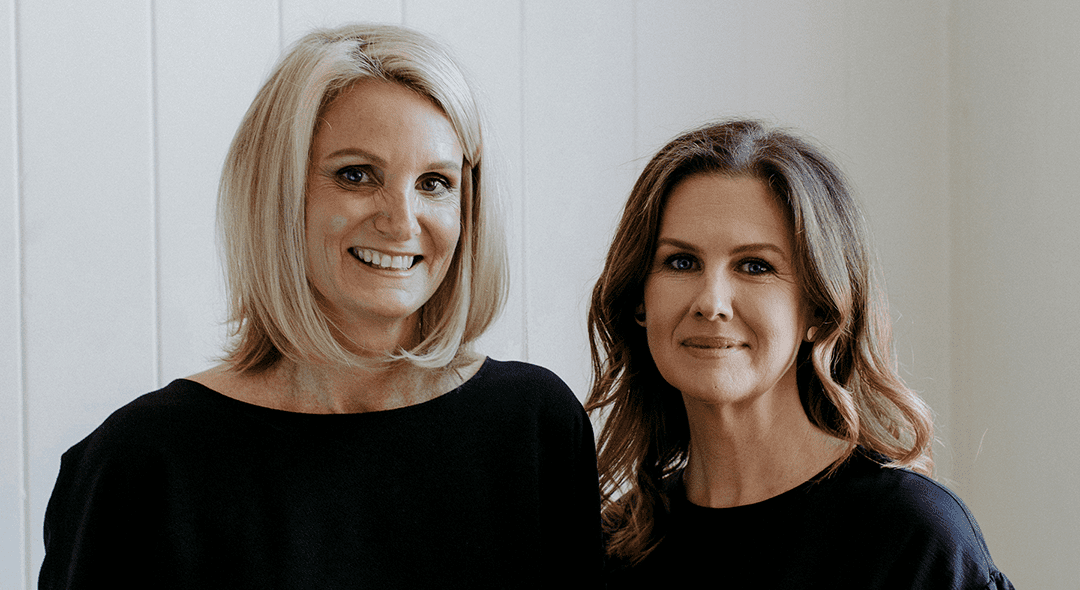
Replace the plastic bag with a better bag! Kate Bezar, The Better Packaging Company
The Better Packaging Company does just what you think it should: makes plastic packaging that’s compostable in your own backyard. Starting with replacing those awful one-use plastic courier bags, the company now offers alternatives to plastic gloves, gift wrap, sticky labels and bags of all sorts and is exporting its plant-based products in Australia, Europe, China and the USA. But what does compostable mean? Is it the same as biodegradable? What happens when you don’t have a compost bin? And does plant-based plastic just replace one set of problems with another? Vincent is joined by co-founder of The Better Packaging Company, Kate Bezar. The company recently was named a finalist in the Sustainable Business Awards.
Check out The Better Packaging Company here
Hear the Podcast Here:
https://www.betterpackaging.com/
https://www.linkedin.com/company/the-better-packaging-co
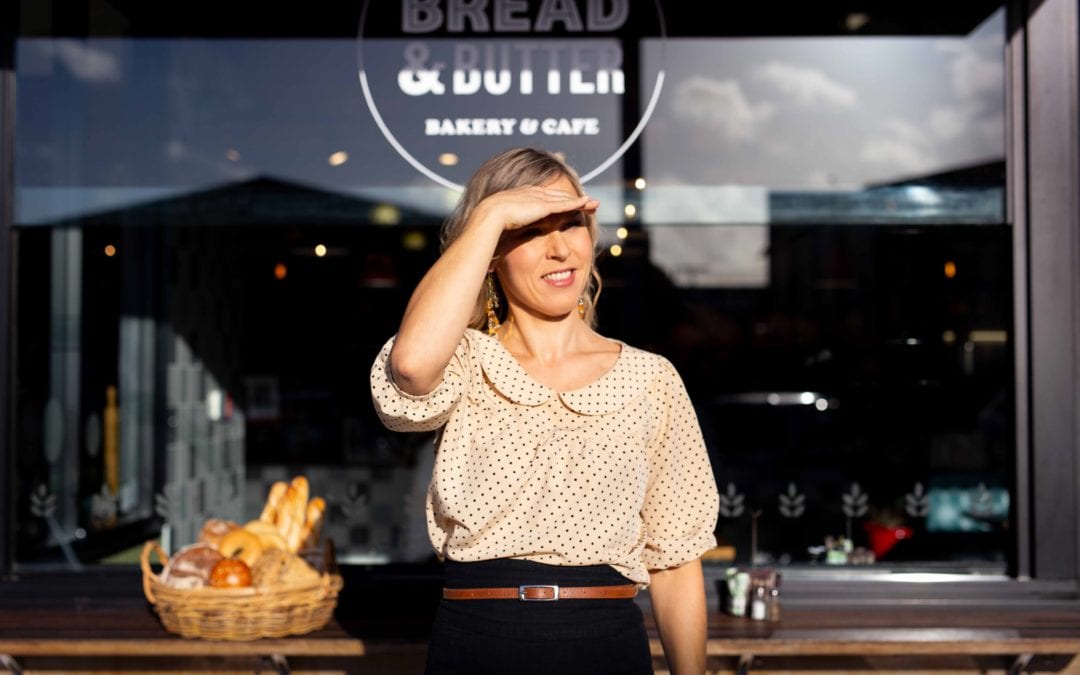
The Magic of Bread and Butter
Bread is one of our oldest foods and Isabel Pasch, the owner of Ponsonby based Bread and Butter is a true fan of sourdough. We talk about the magic that is bread and about the Bread and Butter journey. Bread and Butter are a Ponsonby based bakery and cafe that specialises in traditional European foods and naturally leavened bread made using organic ingredients. Curiously, Isabel Pasch, the owner of Bread and Butter is neither a baker now a pastry chef. She is actually a trained microbiologist and prior to the bakery owned a company that specialised in science PR. However, growing up in Germany meant that Isabel grew up around bread and cake. Her family loved baking and Isabel and her sister grew baking cakes, biscuits and slices whenever the opportunity arose. “It wasn’t frowned upon to have several pieces of cake – with cream”, she says.
When she moved to New Zealand, she was not only in search of a new career but also in search of better bread. Having come up empty in the bread department, Isabel decided to open her own bakery.
The rest as they say is history, or in Isabel’s case, sourdough. At Bread and Butter, food is made according to traditional recipes and their shelves are packed with long-fermented and wheat-free sourdough loaves, German rye breads, French baguettes, Italian ciabattas and a large selection of bread rolls, including the famous German pretzel rolls. What you won’t find in their kitchen is a premix or ready to use filling – a rare thing in a commercial kitchen these days! What started as a small bakery business that Isabel bought has evolved into a company that has a bakery in three locations in Auckland. They also retail at a range of specialty stores and curiously despite their size, still have a stall at the local farmers’ market.
On the show we chat about:
- The history of bread
- Why does bread have such a bad reputation?
- Naturally leavened bread and why it tastes better
- Not compromising on taste and all that it entails
- Sourcing wheat grown locally and why that’s important
- Scaling a bakery business
Listen to the Podcast Here:
Learn more – www.breadandbutter.nz


